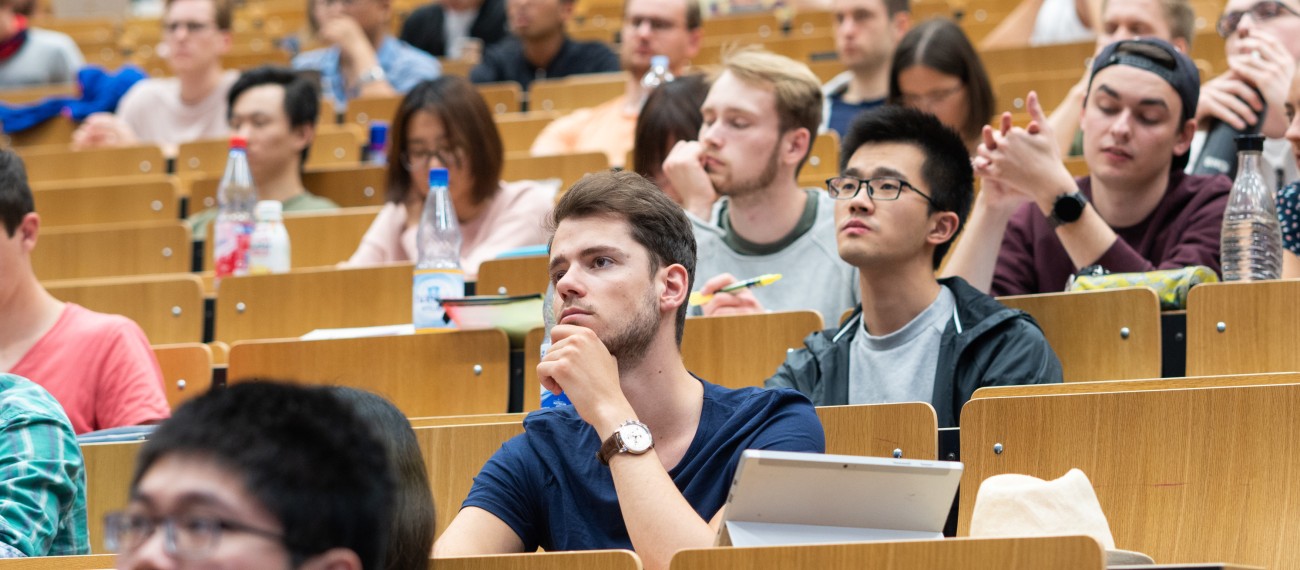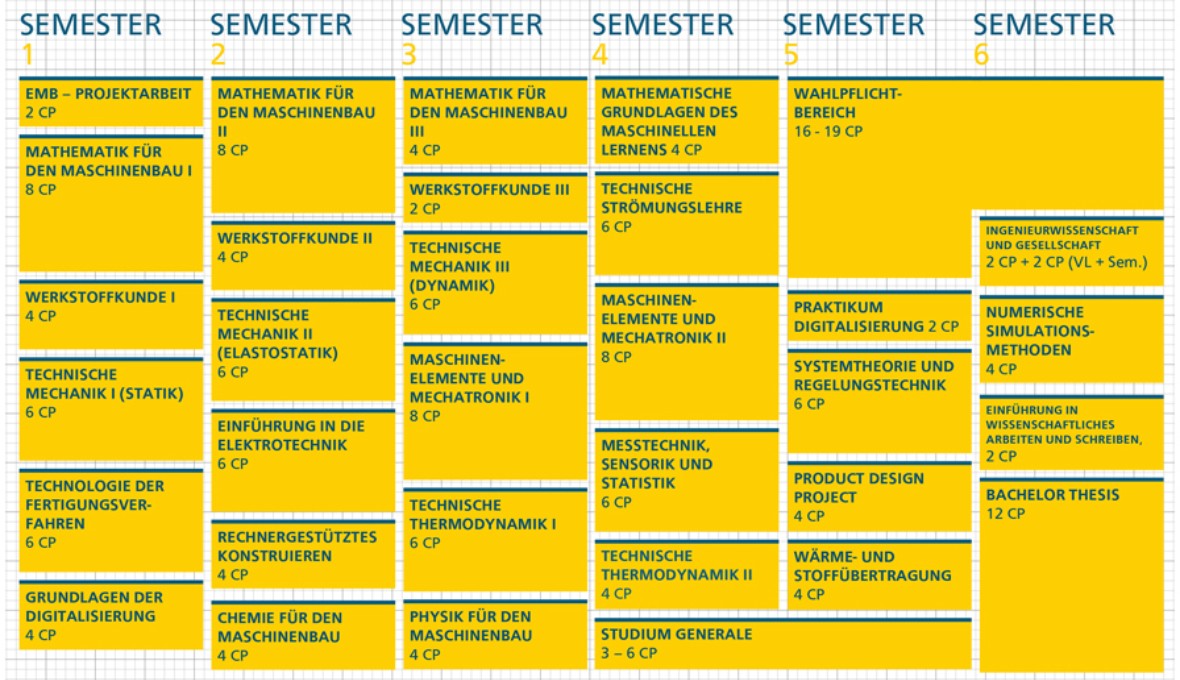Study Content
The educational content of the bachelor's programme includes several subject areas that are essential to working as an engineer. These subjects are covered in a series of lectures over several semesters. The structure of the study programme takes into account that the foundations for further lectures are taught in the previous semesters.
The study programme includes (among others) the following courses:
- Fundamentals of engineering mathematics
- Mechanics of static, elastic and dynamic systems and fluids
- Thermodynamics and heat and mass transfer
- Chemistry, physics and materials science
- Electrical engineering, data processing and metrology
- Digitalisation and FAIR principles
- Construction theory, computer-aided design and measurement technology
- Production engineering
- Systems theory, control engineering and numerical simulation methods
The curriculum is rounded off by a number of project assignments and the course “Introduction to Scientific Work and Writing”, which are designed for students to be able to learn outside of the standard teaching of methodology and in larger groups and organisations. These include the award-winning one-week first-semester project “Introduction to Mechanical Engineering” and the one-month fifth-semester project “Product Design Project”. The “Digitalisation Internship” once again incorporates the important subject of digitalisation.
While the principles of sustainability, safety, and resource-conserving, environmentally compatible action are treated as cross-cutting topics in all subject modules, “Engineering Science and Society” places its focus specifically on the ethical and philosophical foundations in the work of engineers. The common goal is to ensure that graduates from the TU Darmstadt are able to evaluate technical systems and design them in a sustainable manner.
The Department of Mechanical Engineering at the TU Darmstadt has set itself the goal of offering the broadest possible, general and well-founded education that will enable students to carry out their first independent research. Therefore, the general course of study emphasises a systematic, foundational education, which can then be deepened later in the context of master's studies or dissertations.
For admission to the bachelor's degree programme, a preliminary internship must be completed that conveys elementary knowledge of materials as well as their machinability and processability and provides an overview of the manufacturing facilities and processes. Proof of completion of the internship must be submitted by the end of the first year of study. In addition, the department offers a variety of abroad study placements as an optional opportunity.
Support
The Department of Mechanical Engineering values providing comprehensive support for its students.
On average, we have about 300 new undergraduate students per year. Good and close supervision is important to us and is made possible by a highly qualified teaching staff. With a total of more than 600 scientists, we can guarantee a supervision ratio in the low single digits. This is especially noticeable in the mostly small and specialised courses of the higher semesters and in the supervision of projects and student work.
The MechCenter is your office for student affairs and has different support offers.
TheMechanical Engineering Student Committee offers you further support from and for students of the department.
And after your bachelor's degree?
After completing your bachelor's degree, it's best to continue directly with a master's degree at our university – either in mechanical engineering, in our specialised aerospace engineering programme, or in one of our other interdisciplinary programmes such as energy science and engineering!






